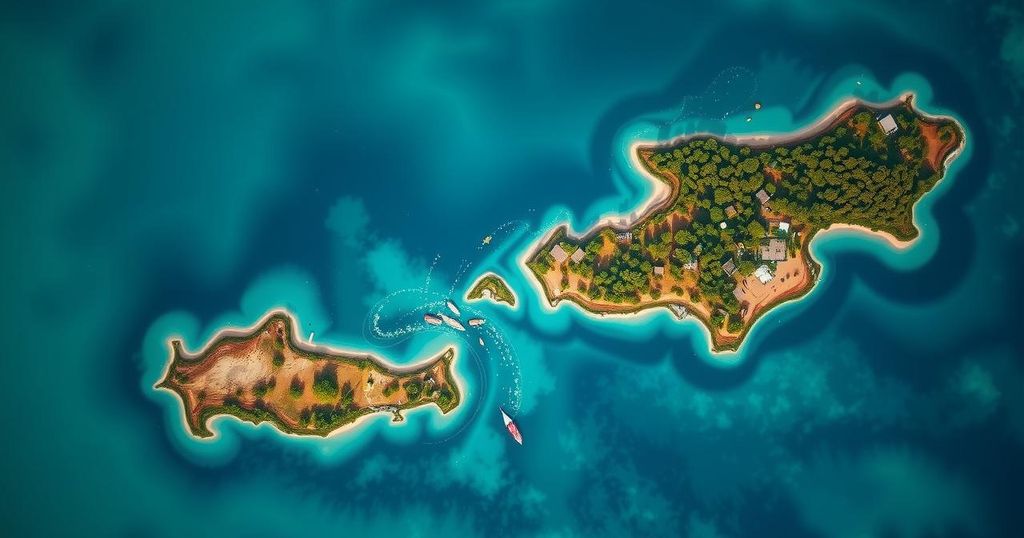Small island nations are urging the International Court of Justice to look beyond existing climate treaties in holding high-emission states accountable for violations of international law. Vanuatu’s climate envoy stressed the need for urgent legal recognition of the responsibilities associated with climate change impacts, as various affected nations present stark realities of their struggles in the face of climate-induced disasters. The hearings represent a critical reevaluation of state obligations amid ongoing climate crises.
On December 2, 2024, nations confronting dire challenges from climate change urged the International Court of Justice (ICJ) at The Hague to extend its legal considerations beyond existing climate treaties, such as the Paris Agreement. Vanuatu’s climate envoy, Ralph Regenvanu, emphasized that high-emitting states have violated international law while introducing a case initiated by the Pacific Islands Students Fighting Climate Change (PISFCC).
The ICJ’s hearings aim to clarify the obligations of states towards climate change impacts, a request stemming from a UN General Assembly resolution in 2023 that sought a broader interpretation beyond established frameworks like the UNFCCC and Kyoto Protocol. Regenvanu articulated the integral connection between the culture of Pacific island nations and their ancestral lands, stressing the injustice faced by countries like Vanuatu that contributed minimally to climate change yet suffer its severe consequences.
Vanuatu’s Attorney General, Arnold Kiel Loughman, called upon the ICJ to ensure accountability for states whose actions have precipitated global crises. Loughman argued, “How can the conduct that has taken humanity to the brink of catastrophe, threatening the survival of entire peoples, be lawful and without consequences?” This sentiment was echoed by various nations emphasizing the need for robust obligations on emission reductions, as stressed by the Bahamas’ Attorney General Ryan Pinder.
Pinder highlighted the devastating impacts of Hurricane Dorian, illustrating the urgent need for action against climate-related damages, urging that existing climate agreements cannot disregard the principles of international law. He remarked, “The climate treaties refer to both human rights and the prevention obligation… The court should resist such harmful attempts to dilute and distort international law.”
As the hearings unfold, nations affected by climate change assert that traditional treaties do not suffice in addressing the urgent realities imposed by climate crisis, calling for an evolved interpretation of international obligations to secure justice for future generations.
The call for the International Court of Justice (ICJ) to expand its legal interpretation regarding climate obligations originates from the existential crises faced by various small island states, which are disproportionately affected by the consequences of climate change. These nations assert that the current international treaties, while important, do not adequately encompass the full scope of responsibilities that high-emitting countries must uphold. The hearings represent a pivotal moment where affected nations seek to redefine legal standards surrounding climate actions and state accountability on a global scale.
The proceedings at the International Court of Justice mark a significant step for small island states demanding accountability from high-emission nations for the climate crisis. By challenging the limitations of existing treaties and advocating for a broader interpretation of international obligations, these nations seek justice and protection for their future generations. The ongoing discussions underscore the imperative for international law to evolve decisively in response to the escalating climate emergency, reflecting a collective pursuit of equity and responsibility among states.
Original Source: www.ipsnews.net






